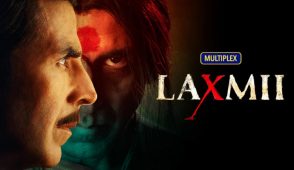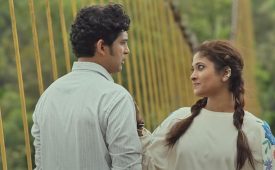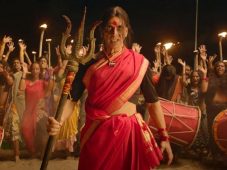Mohalla Assi Movie Review: Sunny Deol Film Talks More, Thinks Less hindustantimes.com
Mohalla Assi, like the country whose spirit it is trying to capture, is a volatile and unwieldy mess. At its best, it is a combination of faith, philosophy and politics; at its worst, it is just sound and fury signifying nothing. Mohalla Assi in Kashi — or Benares, or Varanasi – is a microcosm for India in the film. Set in the early ‘90s, the film directly pits us into a tumultuous time for the country with the Mandal agitation and the Babri Masjid-Ram Janmabhoomi issue raging. When the hurly-burly was over, India emerged a different nation and it is that transition that the film wants to capture.
It is a shame then that Mohalla Assi fails so spectacularly. It could have been the film for our times – after all, the seeds of present-day India were sown during those turbulent months in December 1992. There are moments where director Chandraprakash Dwivedi lays bare what the country is and what it was, before he completely loses the thread. The film’s narrative is uneven, its feel dated and the director Chandraprakash Dwivedi feels the need to underline every point he is trying to make.
Watch the Mohalla Assi trailer here
The film begins with Sunny Deol’s Pandit Dharmanath Pandey, a rigid and conservative priest who practices on Assi ghat and prefers to live in the past. While others in Kashi like Ravi Kishan’s tourist guide are on the get-rich-quick path by marketing exotic India to foreigners, Pandey refuses to let them even enter his ‘mohalla’. He prefers to live in poverty and gets shot in the leg when he goes for ‘karseva’ to Ayodhya.
Sakshi Tanwar, as his wife, is steeped in the same ethos but is clear-headed and knows right from wrong. She is not afraid to give her husband a piece of her mind, either. Pandey realises too late that the world has changed and he has been left behind. His attempts to catch up don’t end well but they come with self-realisation of the religious kind.
Sakshi Tanwar plays Sunny Deol’s wife in Mohalla Assi.
Bringing a Shakespearean chorus-like effect to Mohalla Assi is the mélange of characters that meets at the neighbourhood ‘chai ki dukan’. Only, in Kashi, this humble establishment is considered a ‘parliament’ where the people’s will and thoughts rule – important issues of the day are discussed, a dyed-in-saffron ‘karyakarta’ is given many a lesson on the spirit of India, and Kashi’s reputation as a centre of learning is upheld.
In the first half of the film, some of the most vibrant moments take place in this run-down tea shop. It is here that the chants of ‘Har Har Mahadev’ that have been ringing in Kashi for generations are gradually replaced by ‘Jai Shri Ram’. The scene is quite telling in itself but the director makes sure a character points it out anyway.
While the film gets its cast spot-on — it is delightful to see Ravi Kishan having fun with his character and Sakshi Tanwar’s firebrand wife — Sunny Deol is completely miscast. He neither gets the accent right, nor does he capture the nuances of his character’s spiritual dilemma.
Sunny Deol is miscast as a priest in Mohalla Assi.
There are many who have pointed out the use of swear words in the film but this is something you get used to. In a way it stands for the place the film is trying to portray — a balance between profane and pious.
Mohalla Assi’s heavy-handed approach is its biggest problem. Despite the film’s dated feel and its censorship troubles, it could have been a good film, an important film. Kashinath Singh’s novel, on which it is based, is as relevant today as it was when it was written years ago. So is its central issue — the changing ethos of India and how it balances consumerism with faith, pluralism with rise of right-wing extremism. However, the script loses the finer nuances in translation and the first half, with a few good moments, gives way to a completely boring second half.









Leave Your Comment